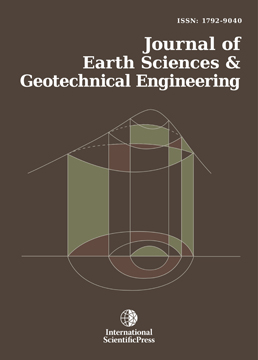Journal of Earth Sciences and Geotechnical Engineering
Participation on Traditional Gold Mining and Its Impact on Natural Resources, the Case of Asgede Tsimbla,Tigray, Northern Ethiopia
-
 [ Download ]
[ Download ]
- Times downloaded: 11710
-
Abstract
Since the fall of Derg regime (after 1991) private participations in mineral prospecting, exploration and development activities have been encouraged in Ethiopia. Consequently traditional gold mining (panning technique) has received a boost to become source of livelihood and employment for many landless and unemployed citizens and important source of hard currency. This research was initiated to assess the status of participation and evaluate resulting impacts on natural resources in Asgede-Tsimbla. Instruments including interviews, questionnaires, discussions, observations and reviewing of existed evidences were employed. Inference from data analysis indicated that majority of the traditional gold miners were youths (below 35 years old), unemployed (80%), and landless (90%). They use very traditional equipments and arbitrary approaches yielding inevitable natural resources degradations. Depletion and pollution of water resources, land disturbances and sever soil erosion, vegetation and biodiversity loses were the serious threats of traditional gold mining. The government and the local communities have to come up with toothed and sustainable strategies to make it environmentally friendly with optimum benefits. Further studies were also recommended on impact of traditional gold mining on water quality and downstream communities.
